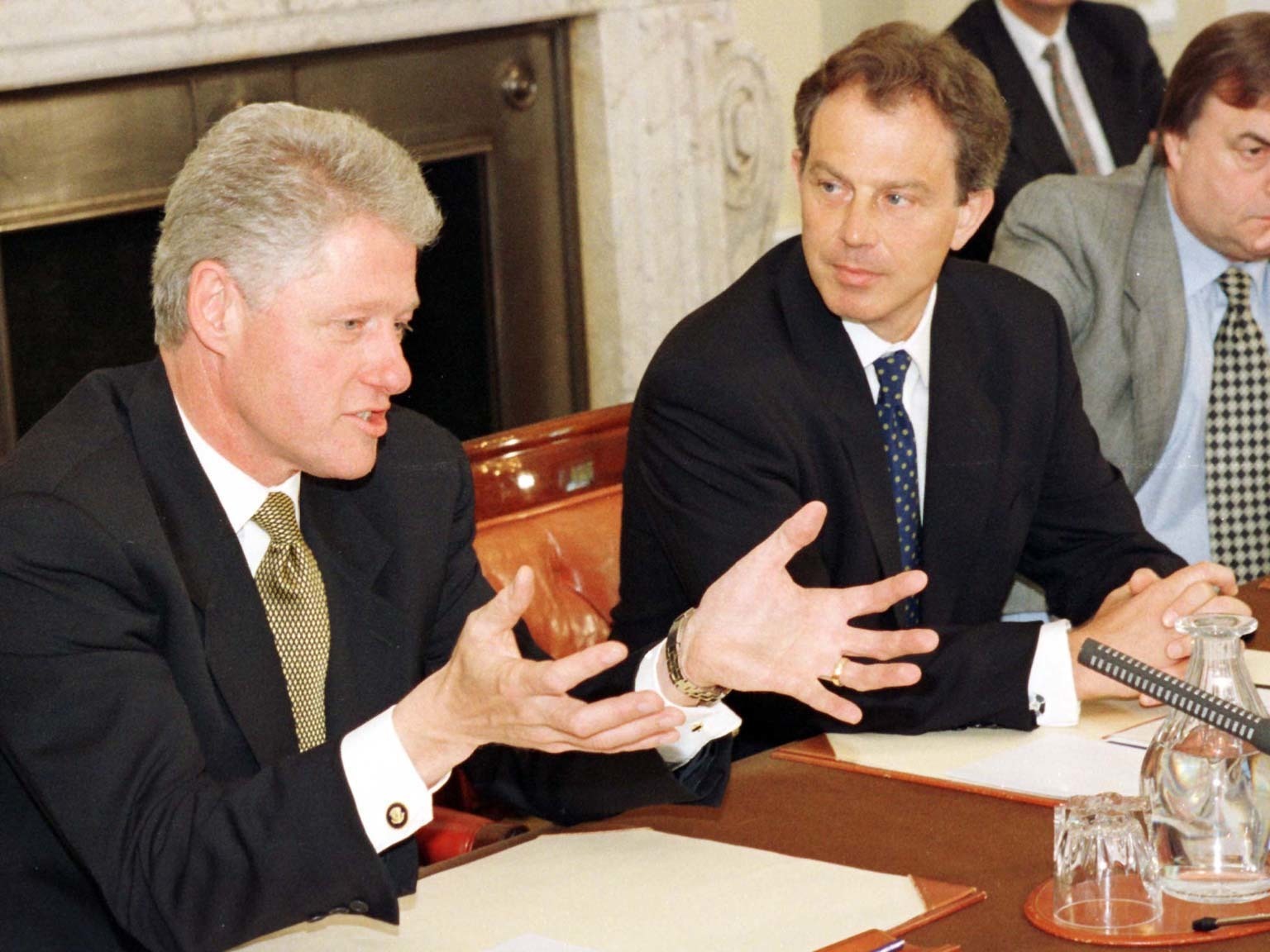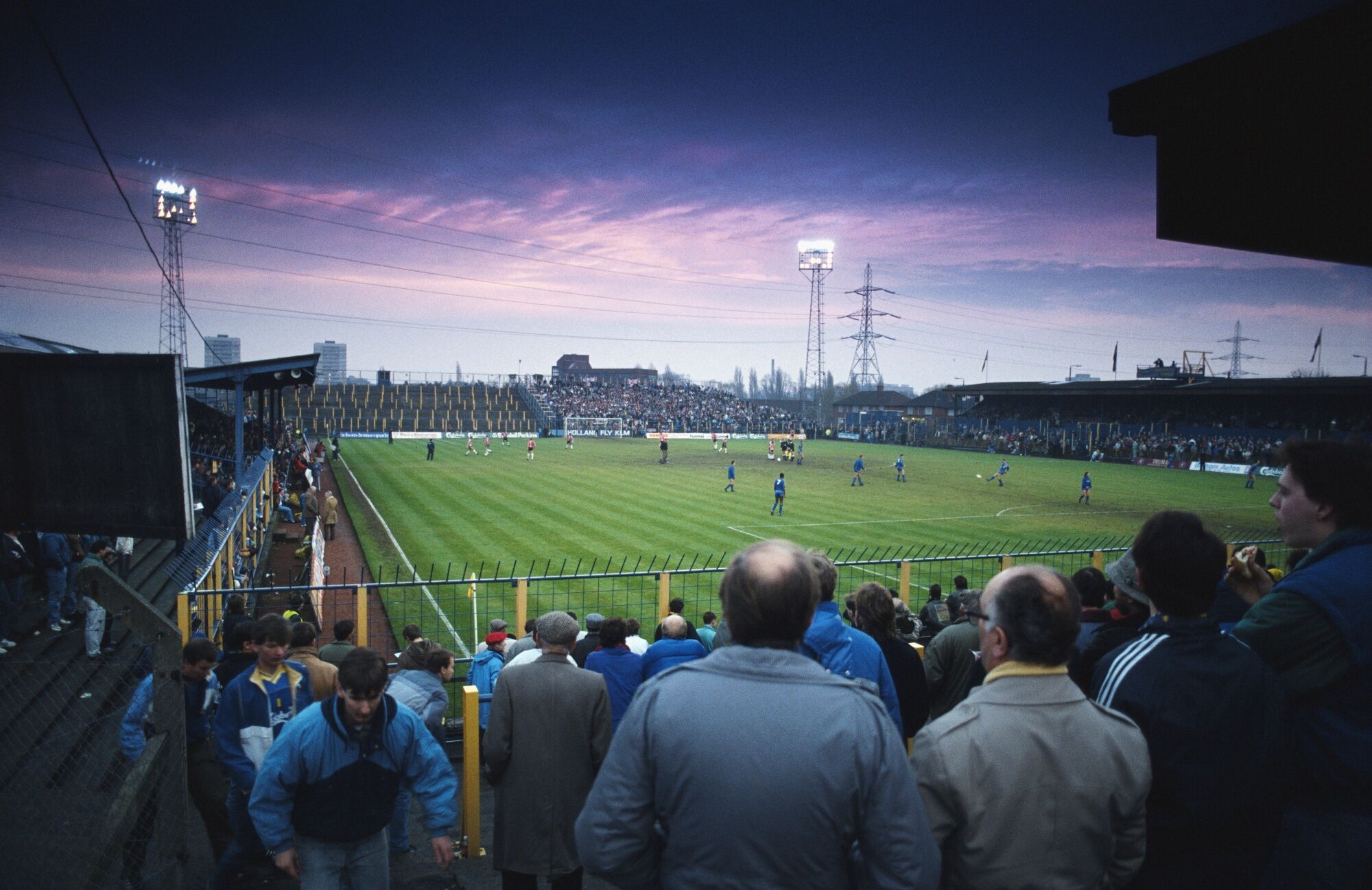In 1998, UK Prime Minister Tony Blair signed the Good Friday Agreement – a historic peace deal that helped bring to an end a bloody 30-year sectarian conflict in Northern Ireland.
Blair, along with US President Bill Clinton and the Irish government in Dublin, helped forge the agreement between Unionist and Nationalist factions to end ’The Troubles’ and strive for a peaceful democracy.
“Peace at last for Ulster” read the front page of The Independent with Blair pictured with Taoiseach (Irish Prime Minister) Bertie Ahern shaking hands in celebration.
The deal was arguably Blair’s greatest achievement in office, laying the foundations for peace that previous Labour and Conservative Prime Ministers had failed to do.
Northern Ireland remains a troubled, often tense environment, but ultimately the Good Friday Agreement is a peace deal which is used as an example for conflict resolution around the world today.

Not content with this landmark achievement, Blair had an idea for his victory lap – a brand new 40,000 seater football stadium in Belfast with a Premier League football team occupying it.
Previously confidential state papers revealed last week reveal the Labour Prime Minister was keen on the idea of Wimbledon FC moving to Belfast, with plans to rename the team ‘Belfast United’.
The proposal came at a time when Wimbledon needed a new home, with the original Plough Lane deemed unfit for use after the Taylor Report into the Hillsborough disaster was published in 1990, recommending clubs move towards all-seater stadiums.
READ MORE: Johnnie Jackson’s new-look AFC Wimbledon inspiring a sense of optimism around Plough Lane
The idea to move Wimbledon to Belfast has the makings of a poorly funded British film; in a bid to end a 30-year civil war, the Prime Minister sends Vinnie Jones (playing himself) and the rest of the ‘Crazy Gang’ over to unite the city and end sectarianism.
“I think it was honestly a bit of a publicity stunt” Jim Boyce, IFA President at the time told the BBC.
The plan, as they often do when proposed by politicians, had zero regard for fans with Wimbledon nevertheless later being allowed to relocate to Milton Keynes in what is still one of the most disgraceful decisions to ever be made by the English FA.

If Blair’s plan did come to fruition, not only would Wimbledon fans be left without a club, but domestic football in Northern Ireland would have been decimated.
Belfast already has four well established Irish Premiership teams – Linfield, Glentoran, Cliftonville and Crusaders, not to mention about a dozen in lower divisions.
READ MORE: Ali Al-Hamadi – From fleeing war-torn Iraq to finding a home at AFC Wimbledon
A Premier League side moving to Belfast may well have Northern Irish domestic football out of business.
It arguably wasn’t even the wackiest football-themed proposal in relation to The Troubles, with former Labour spin-doctor Alastair Campbell writing to Blair ahead of the vote on the Good Friday Agreement proposing an Old Firm derby in Belfast in which each team would swap shirts and wear their rival team’s colours for the game.
Anyone with even the slightest understanding of the footballing rivalry and the religious connotations surrounding it will know how insane an idea that would have been.

Over the last few decades, football has become a valuable PR tool for politicians, used as a trump card to gather support on popular issues.
With the sport growing to reach international audiences, the benefits it can bring for politicians looking for some positive spotlight heightens even more.
However, when it is used, all too often the football fans themselves are an afterthought.
READ MORE: AFC Wimbledon’s Plough Lane Bond truly shows ‘Home Is Where The Heart Is’
When AFC Wimbledon were moving forward with plans to build the new Plough Lane stadium back in 2015, then London Mayor Boris Johnson delayed the green light due to ‘significant issues of controversy.’
The decision brought shock and anger after Merton Council unanimously approved the plans with the delay costing the clubs millions which has added to the already sizable debt they are still paying today.
In the run-up to the next general election, no doubt those jousting for control in Westminster will once again use football as a vice for support.
Keir Starmer tweeted last week “It’s time to start putting fans first” in response to the Super League rearing its ugly head once again.
It’s a nice bit of positive PR virtue signalling when real issues such as rocketing ticket and train prices, lack of genuine transport options, ridiculous late mid-week kick-off times and away fans being treated like criminals are continually ignored.
Similarly, Rishi Sunak’s stunts have already begun too, with the PM making a trip to Southampton’s dressing room after their victory over Plymouth Argyle while Michael Gove often portrays himself as a ‘man of the people’ by appearing amongst QPR fans.
Yet in reality neither Labour or Conservatives give a damn about football fans, and unfortunately, it’s likely they never will.
If politicians really cared about the common football fan, English club football would be in a lot healthier state than it is currently in.
Football is just a PR tool for them, to be used if and when they like, so when the election rhetoric ramps up later in the year, take it all with a pinch of salt.